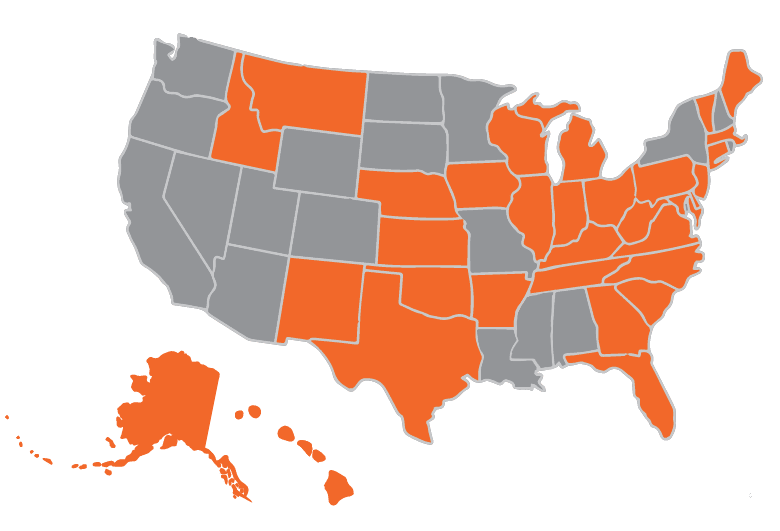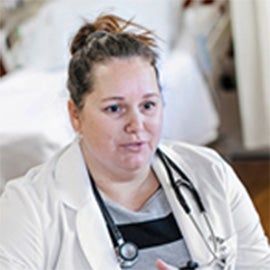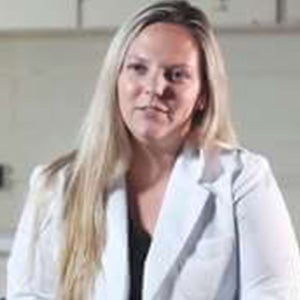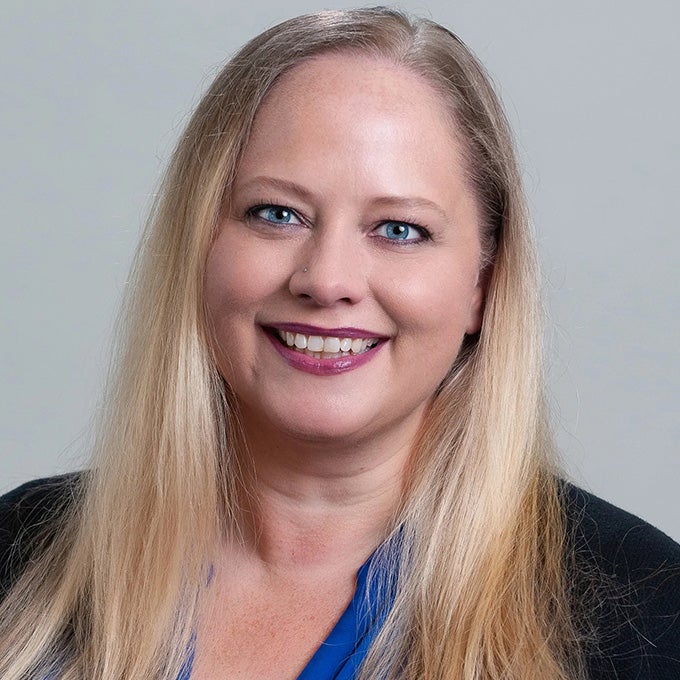The master's degree program in nursing and post-master's certificate program at Carson-Newman University are accredited by the Commission on Collegiate Nursing Education (http://www.ccneaccreditation.org).
Deliver Primary Care as a Family Nurse Practitioner
The Online Master of Science in Nursing - Family Nurse Practitioner (MSN-FNP) program at Carson-Newman is accredited, affordable, and offers the opportunity for personal growth for nurses with a bachelor’s degree looking to expand their careers. Students in the online MSN-FNP program learn from experienced faculty who are active practitioners in their communities. Graduates gain the skills and confidence necessary to define their future as holistic family nurse practitioners.
Get Started Now
Learn more about Carson-Newman University's online nursing programs.
- 100% Online Coursework*
- Less Than $32k Total Tuition
- Clinical Placement Support Provided
- Dedicated Student Success Advisor
-
- All coursework is 100% online (not including clinicals, residency and on-campus certification review)
- Receive clinical placement support
- Designed for working nurses, the online MSN-FNP is part-time yet streamlined. Graduate in as few as 32 months!
- One 3-day on-campus residency experience connects you with peers and instructors for hands-on learning
- Receive board certification preparation with a 2-day live review (to take place the same week as commencement)
- Be supported from the first day of class until graduation by a dedicated Student Success Advisor
- Save up to $200 per credit hour compared to nationwide competitors
- Accredited by:
- Commission on Collegiate Nursing Education
- Southern Association of Colleges and Schools Commission on Colleges
- Approved by the Tennessee Board of Nursing
-
-
-
-
- All coursework is 100% online (not including clinicals, residency and on-campus certification review)
- Receive clinical placement support
- Designed for working nurses, the online MSN-FNP is part-time yet streamlined. Graduate in as few as 32 months!
- One 3-day on-campus residency experience connects you with peers and instructors for hands-on learning
- Receive board certification preparation with a 2-day live review (to take place the same week as commencement)
- Be supported from the first day of class until graduation by a dedicated Student Success Advisor
- Save up to $200 per credit hour compared to nationwide competitors
- Accredited by:
- Commission on Collegiate Nursing Education
- Southern Association of Colleges and Schools Commission on Colleges
- Approved by the Tennessee Board of Nursing
Hear from One of Our Online MSN-FNP Students
Check out Student Testimonials to see how Carson-Newman works for working nurses.
On-Campus Residency Experience
One three-day required on-campus residency experience provides you the opportunity to meet and connect with your peers and program faculty. During the residency, students will come to campus for hands-on skills practice and complete an advanced assessment physical exam. Learn more about the Residency Experience.
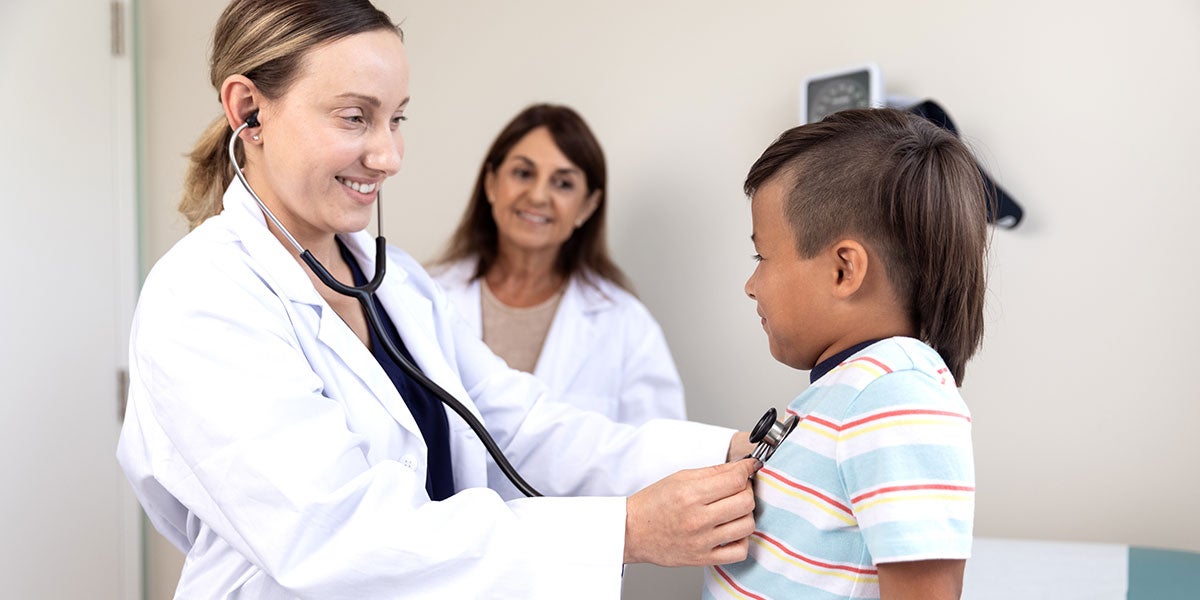
A Private School Education at a State School Price
The online MSN-FNP program consists of 48 credit hours of nursing courses taught by experienced FNP and DNP faculty who are active nurse practitioners in their communities. At part-time pacing, the program can be completed in as few as 32 months.
Presentation and in-depth analysis of normal physiologic and pathologic mechanisms of disease as related to the provision and management of client care at the advanced level.
Advanced pharmacokinetics and pharmacodynamics of commonly used drug categories are analyzed in depth with consideration to safe, high-quality, cost-effective drug therapy for client care.
Comprehensive health assessment of the client with advanced application and synthesis of physiologic, psychological and sociocultural concepts as applied to comprehensive health appraisal of individuals, families and community groups. (60 Clinical Hours)
Exploration and application of advanced nursing theory in the provision of a wide range of health promotion and care services for women, including reproductive health. (180 Clinical Hours)
Exploration and application of advanced nursing theory in the provision of a wide range of health promotion and care services for adults, including the elderly population. (240 Clinical Hours)
Nursing By The Numbers
*(vs 46% for new grads across all disciplines) 2017 American Association of Colleges of Nursing Report
What Does Clinical Placement Mean?
Clinical hours are a required component of Carson-Newman’s MSN-Family Nurse Practitioner degree and Post-Master’s Certificate program. Clinicals work in tandem with the classroom-based coursework to allow students to gain real life practice with expert supervision, build relationships with potential employers and receive counsel from an accomplished mentor. At Carson-Newman, our clinical placement support team will offer assistance with preceptor matching and clinical placement support, saving you days and weeks of time and allowing greater work life balance.
How Does The Process Work?
As you begin your program, you will receive a placement intake form. Using information from the form and clinical objectives, a dedicated placement specialist will work with you to identify potential preceptors and clinical sites, including any referrals from you. Once confirmed that your sites are qualified to meet program and state-specific requirements, the placement specialist will handle the paperwork and provide logistical support for your clinical rotation.
Why Is Clinical Placement Important?
Finding a preceptor and clinical site can take intensive research and coordination, taking time away from studies. A lack of support also leaves room for miscommunication or rejected placements, setting a student back for months. At Carson-Newman, we believe you are only as successful as your training, which is why we have taken the stress out of the clinical placement process.
The Carson-Newman Difference
Our clinical placement services are comprehensive, giving you the support you need to succeed from start to finish. Your Placement Specialist will secure quality placement sites and preceptors from our network of providers for 600 clinical hours, as well as any referrals from you. This will free up time for coursework and core competencies, helping you stay focused and thrive in your program.
Testimonials
The online Master of Science in Nursing - Family Nurse Practitioner program (MSN-FNP) is for registered nurses who hold a BSN degree and are looking to prepare for the role of an advanced practice nurse. Graduates gain the skills necessary to define their own future as holistic and confident family nurse practitioners, ready to impact their communities.
The fully accredited online MSN-FNP degree program is 100% online*, which allows you to earn your MSN on a schedule that supports work-life balance.
Carson-Newman University offers student-centric support, including:
- Personalized admissions assistance
- Clinical placement support
- Affordable tuition for less than $32k**
- Flexible, online coursework
- No application fee
- An efficient path–graduate in as few as 32 months
- 1:1 support throughout the program from a Student Success Advisor
*not including clinicals, residency or on-campus certification review
**plus fees (tech fee $55 per credit hour, $400 fee per semester)
A family nurse practitioner is a registered nurse who has received the specialized clinical and educational training necessary to practice primary family-focused care. Like a family physician, a family nurse practitioner works with patients of all ages to diagnose medical conditions, treat illness, prescribe medications and maintain health over the patient's lifespan.
The laws regulating family nurse practitioners differ from state to state. Certain states require FNPs to work under the supervision of a physician. In many states, however, family nurse practitioners are authorized to work independently.
Think of a family nurse practitioner as a registered nurse who is licensed to perform many of the same roles as a family doctor. A family nurse practitioner sees patients of all ages for scheduled or drop-in health care appointments. Depending on state restrictions, he or she performs physical exams, orders diagnostic tests and procedures, diagnoses illnesses, prescribes and administers treatment, and educates patients on how to develop and maintain healthy lifestyles.
Family nurse practitioners work in a variety of settings. While many choose to work in private practice, others work in settings such as retail clinics, hospitals and schools.
- Private Practice: Many FNPs work in private practice outpatient clinics, where they focus on providing primary care to their supervising physician’s patients or their own patients.
- Retail Clinics: It is becoming common for FNPs to work in retail health clinics. Often these clinics are open during regular business hours up to seven days a week and attract a high percentage of walk-in patients.
- Urgent Care Centers: Urgent care centers are where patients go for non-emergency urgent care such as minor fractures, sprains and allergic reactions, all of which FNPs are trained to handle.
- Hospitals: Some FNPs choose to work in hospital settings. Because their training is in primary care, FNPs who want to work in hospitals often obtain additional certification as an acute care nurse practitioner or emergency nurse practitioner.
- Schools: A small percentage of FNPs work in schools where they provide primary care for students.
A family nurse practitioner has many important roles and responsibilities. Just like a primary care physician, an FNP provides diagnosis, treatment, disease management, health education, and preventive health care services. Depending on the state they work in, FNPs have the authority to:
- Manage chronic health conditions like hypertension and diabetes
- Treat minor acute injuries (such as sprains and strains) and illnesses (such as flu)
- Provide health care to people of all ages, from infants and children to adults and the elderly
- Conduct health assessments and physical examinations
- Oversee women’s health requirements, including preconception and prenatal care
- Educate patients about health, wellness and disease prevention throughout the lifespan
- Order and interpret diagnostic tests
- Prescribe medication
FNPs work with a broad patient population including members of all genders and ages. In many parts of the country, particularly in rural areas, family nurse practitioners are the sole primary care providers in FNP-led care clinics.
The Bureau of Labor Statistics reports that the median annual wage for a nurse practitioner was $132,050 per year in 2024. This is nearly $40,000 more than a registered nurse's 2024 yearly median wage of $93,600.
Salaries vary for nurse practitioners based on where they work and their specialty. Overall, nurse practitioners are compensated well, with the top 50% taking home six-figure salaries (U.S. News & World Report).
The job outlook for family nurse practitioners is excellent. Since the United States currently faces a shortage of primary care physicians, there is a surging demand for family nurse practitioners.
The Bureau of Labor Statistics projects over 141,200 new nurse practitioner jobs will be created from 2023 to 2033, representing an employment growth rate of 40% (much faster than the average).
FNPs enjoy high levels of job satisfaction and more autonomy than RNs. Nurse practitioners are ranked as #1 in Best Health Care Jobs and #1 in 100 Best Jobs nationwide by U.S. News & World Report. According to the American Association of Nurse Practitioners, 65.3% of nurse practitioners are certified in family practice.
FNPs fulfill a real need. By earning an MSN-FNP degree and becoming a nurse practitioner, graduates will help bridge gaps in primary care. The shortage of primary care physicians is expected to reach as high as 48,000 by 2034. FNPs are answering the call to make health care more accessible across the U.S., especially in primary care.
To become an FNP, you must:
- Get licensed as a registered nurse.
- Obtain a Bachelor of Science in Nursing (BSN) degree.
- Obtain a Master of Science in Nursing degree with an FNP specialty (MSN-FNP).
- Become certified by passing the national FNP certification exam offered by either the ANCC or AANP.
- Apply for state licensure as an FNP.
$132,050
Median Total Annual Wages*
More than 141,200 new Nurse Practitioner jobs created between 2023-2033*
- Family
- Pediatrics
- Women's Health
- Adult - Gerontology
- And More
*U.S. Bureau of Labor Statistics
Important Dates
Our Students Come First
A Private School Education at a State School Price
Founded in 1851, Carson-Newman is a nationally-ranked, Christian liberal arts-based university. The online FNP programs are part-time for working nurses with a student-centric curriculum. Faith and learning are combined to create a transformative education designed to empower you as an autonomous primary care provider.
Check Out Our Blog
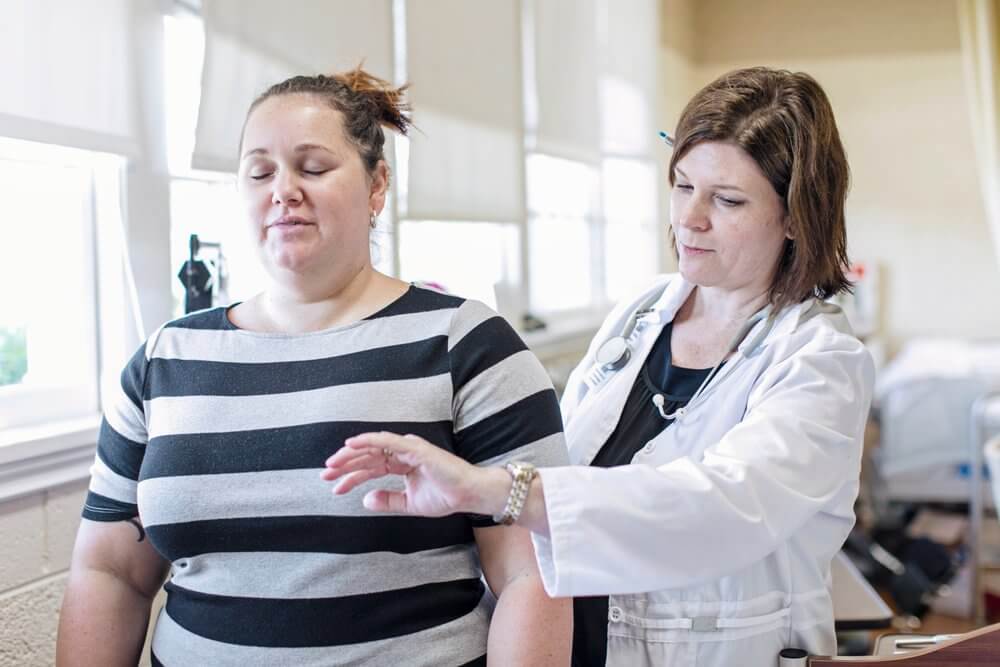


Fully Supported All The Way
Carson-Newman is a leader in adult online education. Students enrolled in our online FNP programs can expect the same academic rigor and support as on-campus nursing students. Our dedicated faculty and staff empower working nurses to turn their vision into reality. From enrollment support to clinical placement support to guidance until graduation, you’ll never be alone on your FNP journey.
Your student success team will help you with:
- Enrollment Support
- Admissions Requirements
- Program Details
- Clinical Placement Support
- Tuition Information
- Upcoming Start Dates


